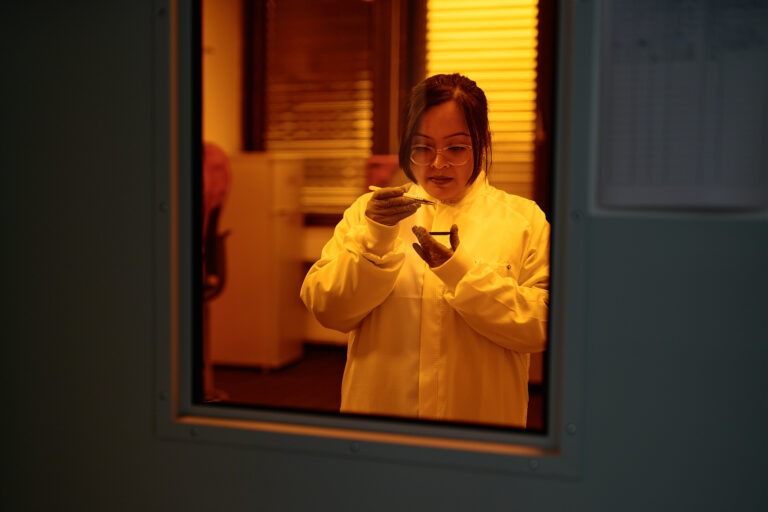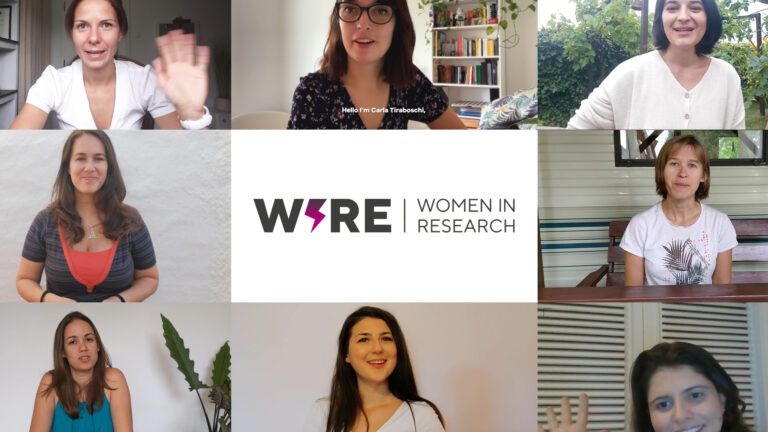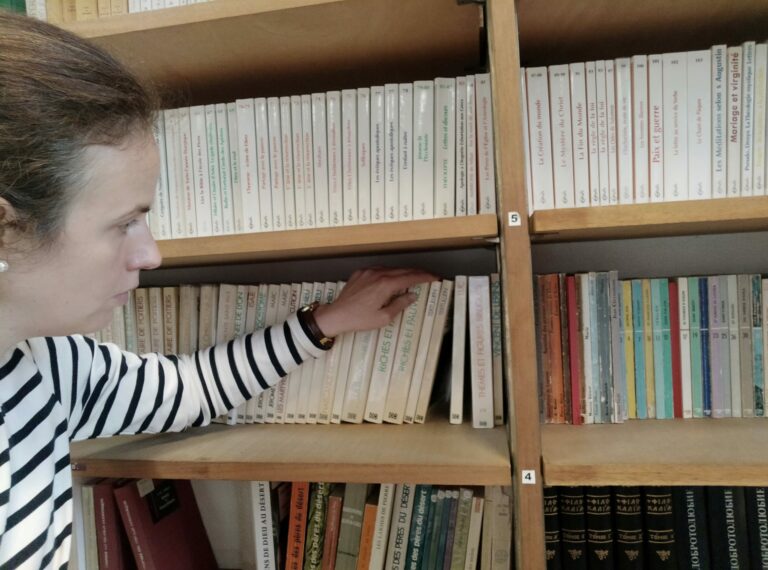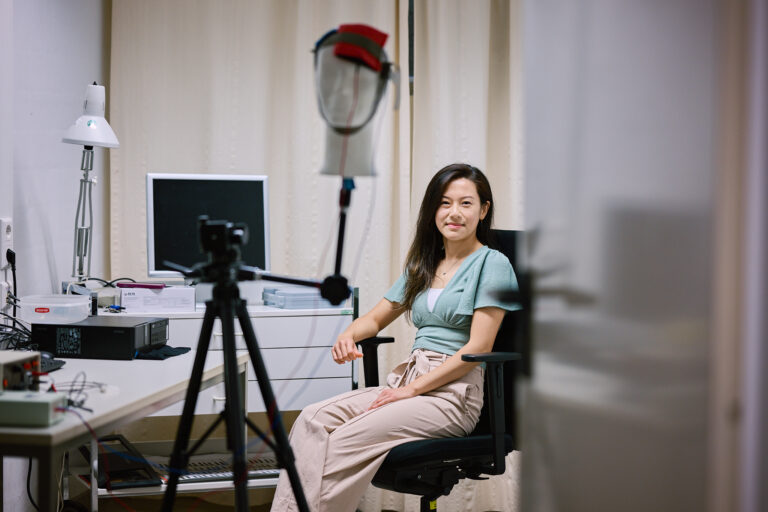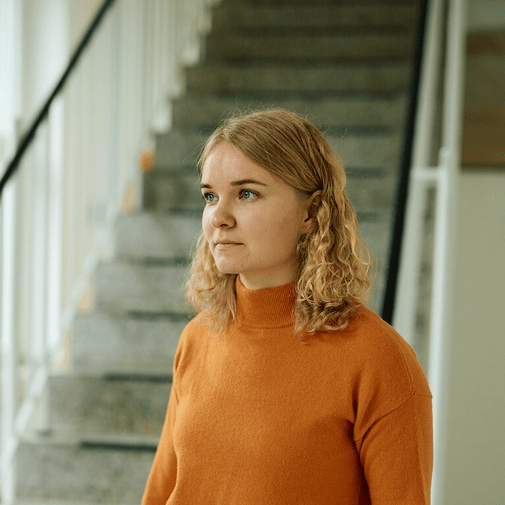
Slowing Down the Process of Ageing – An Interview with Health Scientist Dr. Tiia Kekäläinen
In the series “33 questions” we introduce, in no particular order, our WiRe Fellows who are currently working on a research project here at the University of Münster. Why 33? Well, if we think of the rush hour of life, it is kind of the age that lies in the middle. And we also like the number😉.
In today’s episode we are speaking with Dr. Tiia Kekäläinen, a health scientist and passionate lover of physical activity.
1. What motivated you to work in the field of health sciences and gerontology?
I grew up with my grandmother living with our family and maybe that is reason behind my interest in the ageing process. When I was deciding on my field of study after high school, I was interested in health sciences and ageing, although at the time, I was unaware of the field of gerontology. Upon reading the description in the applicant’s guidebook, I immediately recognized it as my discipline.
2. Describe your research topic in three words.
Physical activity — Ageing — Technology, even though that makes it four words :).
3. How would you explain your research area and topic to a child?
When people get old, they face many changes. For example, they might walk slower than before and might not be able to lift as heavy weights as before. This may cause problems in daily life. It could be difficult to cross the street during green lights if you cannot walk fast enough or carry groceries if they feel too heavy.
I study ways to slow down these changes and to enable life to be as good as possible also in old age. For example, physical activity is one of these tools. It does not necessarily have to be heavy exercise but also staying active during daily tasks and avoiding sitting too much may help.
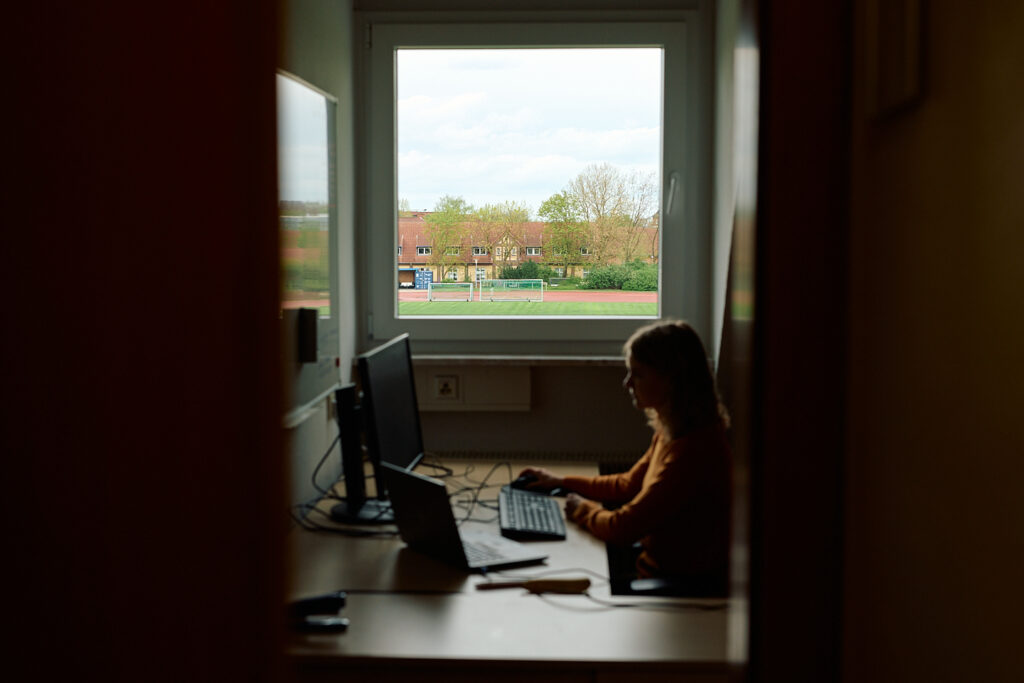
4. Describe your work in three words.
Writing, analyzing, teaching.
5. How did you imagine the life of a scientist/researcher when you were a high school student? Is it actually different? In what way?
I used to imagine that scientists and researchers were always in laboratories, wearing white coats. However, research is incredibly diverse, and the actual work can vary greatly across different fields. For example, in my research, I’ve never had to wear a white coat.
6. In contrast, what does a typical work day look like for you now?
I wake up at 7. I’m not a morning person at all and I need some fresh air to wake up. Thus, I enjoy to walk or bike to work. My work day usually starts by reading and responding to e-mails. Typically, I have a couple of meetings (onsite or online) and work on papers or grant applications by reading, writing, and analyzing data. I finalize my work day by going to the gym or for a run.
7. What do you like most about the “lifestyle” of a scientist / researcher? And what least of it?
I appreciate the freedom to determine my schedule and the content of my work. I also enjoy the opportunity to collaborate internationally, travel, and continually learn and develop myself. However, I dislike the instability of fixed-term contracts and the uncertainty they bring about the future.
8. A good gerontologist needs…?
A multidisciplinary perspective and a consideration of the entire life course.
9. What keeps you motivated in your work day in and day out?
The opportunity to learn something new and interesting every day, along with tasks that are varied and challenging.
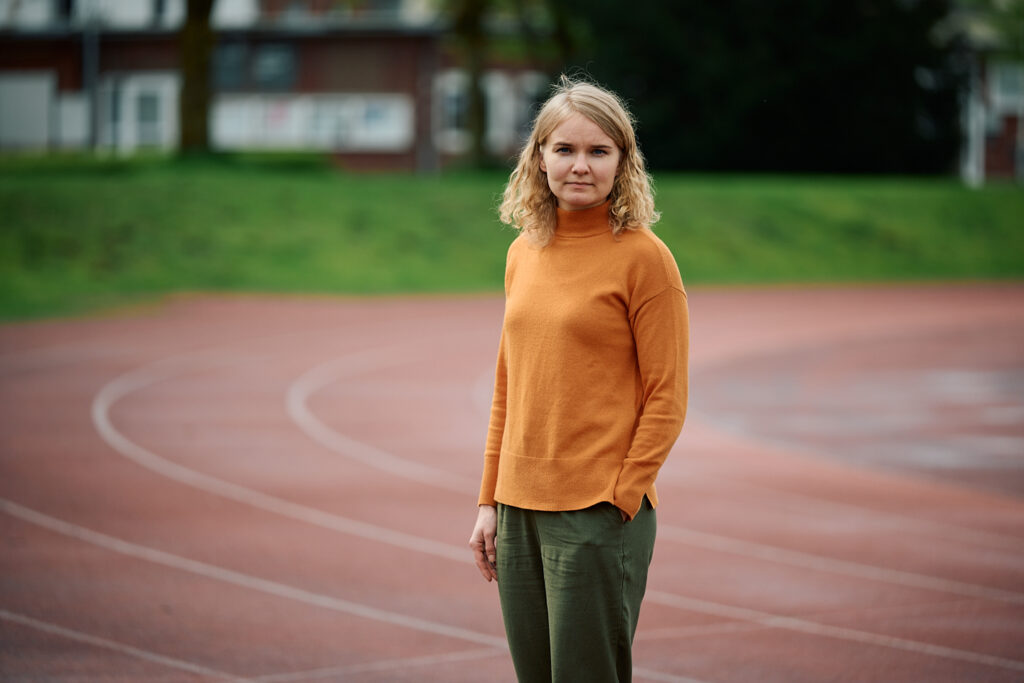
10. What is the best experience you have had as a scientist / researcher?
The best experience so far is my 6-month research visit to the Florida State University in 2022. I gained a lot of skills, knowledge and ideas for my research but also enjoyed my everyday life in the States. It is an example of the great opportunities that being a researcher may bring to your life.
11. What was your biggest research disaster? What did you learn out of it?
I have had no major disasters in my work. However, perhaps the biggest setback so far occurred when I prepared a manuscript using an open dataset, only to discover that someone else had already conducted the same study. That paper is still on my desk as I figure out new perspectives for it. I learned that there’s always a risk of redundancy when using open datasets.
12. Which (historical) important scientist / researcher would you like to have dinner with? What would you ask?
I would choose developmental psychologist Erik H. Erikson. His main theory outlines the 8 stages of psychological development from infancy to late adulthood. I would like to ask him how he would update the theory today.
13. What do you consider the greatest achievement in the history of science / research / your field?
There are many crucial achievements but the development of vaccines came first to my mind.
14. What was the funniest moment you had in science?
In Finland, a PhD candidate organizes a “karonkka,” a post-doctoral party, in the evening after the public defense of their doctoral thesis, in honor of the Opponent. Alongside the Opponent, supervisors, and family members, colleagues are usually invited to the party. In our research center, it is tradition to prepare a short performance to celebrate the new PhD, typically related to the dissertation’s theme but taking various forms such as songs, dances, or plays. Practicing and presenting these performances are among the funniest moments in academia. Personally, I have practiced river dance and ballet, acted as a boxer, and participated in a short physical performance test competition, among other roles.
15. If time and money were no object: Which research project would you like to do?
I would initiate a city-level pilot study to test new methods of promoting physical activity among older adults. This could involve initiatives such as providing free entrance and transportation to all sports facilities, along with free supervised exercise sessions throughout the city. I would monitor exercise participation rates and assess the impact on the health and quality of life of older adults.
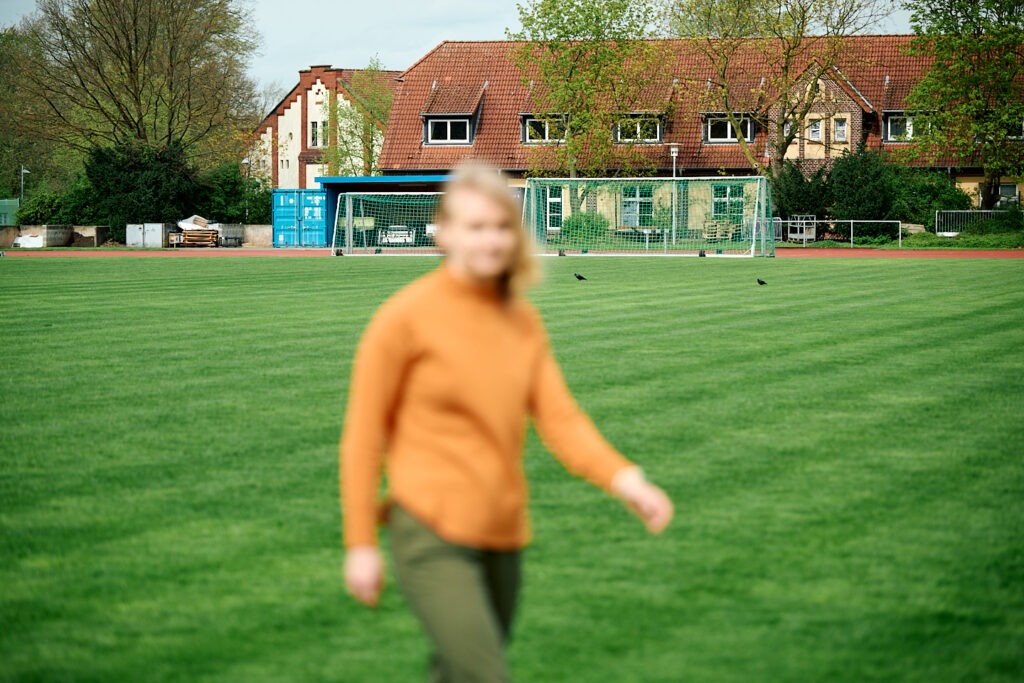
16. How often do you as a friend / partner / mother / daughter feel guilty when you have to meet a deadline – again?
Too often, because I become a tired company as deadlines approach. My husband once remarked, a week after a major deadline, that it was nice to have his wife back to normal.
17. In terms of work-life balance: How do you keep your head clear when you are stressed?
I try to keep up with my daily routines and schedule, such as working regular hours, finding time to exercise, and going to bed early. When I am stressed, I pay even more attention to recovery and relaxation after work, which helps me work efficiently during work hours. For me, higher stress levels necessitate more intense workouts to clear my head.
18. What is your favorite place to relax from research?
This is an easy one; it’s definitely in the middle of the forest. I have a large forest near my home in Finland, and I often go there to pick blueberries or mushrooms, or just for a walk.
19. Which hobby have you given up for a life in academia?
All cognitively demanding hobbies, such as reading non-fiction. I use my brain capacity at work and want to do something less cognitively demanding in my leisure time.
20. What or who inspired you to become a gerontologist?
Probably all the older people I have spent time with. Each person has their own unique life story. In contrast to age-related physical losses, they have more experience and wisdom to share.
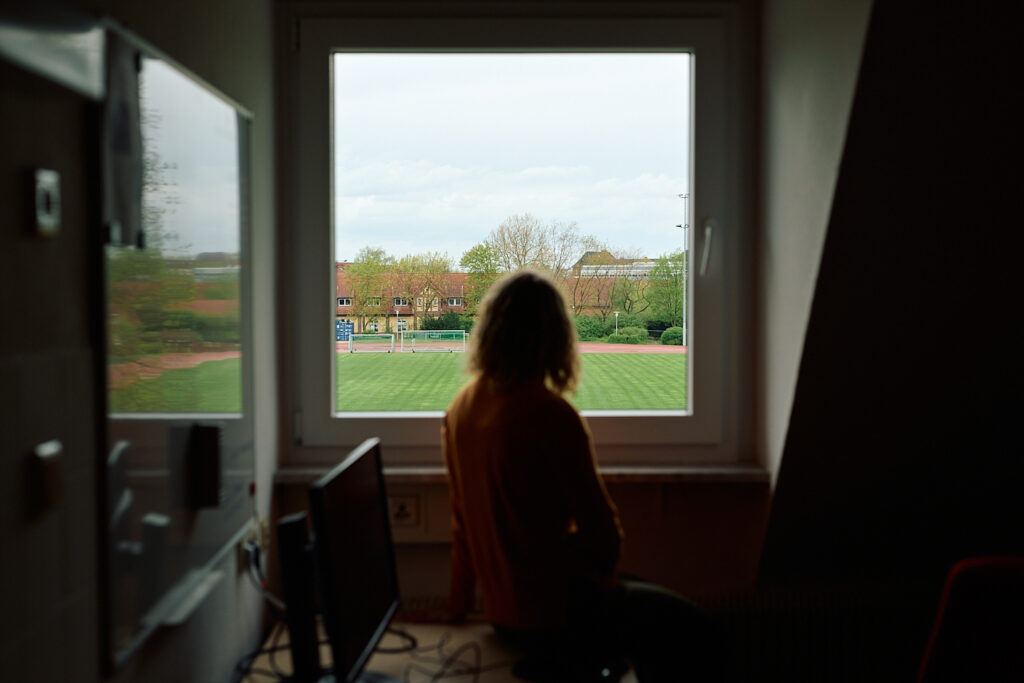
21. Which of your traits bothers you the most in your daily work? And which of your traits help you the most?
Sometimes I find it challenging to maintain focus, especially when transitioning between tasks or after attending meetings. However, what’s helping me is that I am not very perfectionist type, and my goal is “good enough” instead of perfect. That makes things a lot easier. I am also very calm and do not get stressed easily.
22. What advice and tips do you have for future PhD students?
I would remind them that you should be able to complete your PhD by doing your best during work time and ensuring your leisure time is truly work-free. There is no need to be always available.
23. What is your favorite German word? Why?
“Achtung Achtung!” It just sounds funny, especially when it is repeated.
Note by the WiRe Team: “Achtung Achtung!” can have different meanings, depending on the context in which it is used. For instance, it can be used to warn somebody, to get someone’s attention, or even in a joking manner.
24. Do you think your career would have evolved differently if you were a man?
Not really during my research career. However, my earlier interests might have been different if I had grown up with different expectations and had different friends. It’s likely that I would have chosen to study something else.
25. How did you imagine your future as a child? What profession did you want to pursue?
I did not have any “dream job” when I was a child, and I found it very difficult when people asked that what I would like to be when I grew up. I remember imaging that I would like to travel a lot and have a cat and a dog. Well, I have already travelled more than I ever expected, and I now have two cats. A dog is still waiting for the right time.
26. Where do you see yourself in 10 years?
I hope to have a permanent job contract at that time and to work in an expertise position where I can utilize my research skills.
27. If you were the research minister of Germany, what would you do to improve the situation of women in science?
This is a difficult question. I do not know the system in Germany well enough, but I suppose there are obstacles that need to be removed. I have read that the issue arises particularly after completing a PhD; the percentage of females in postdoc positions is lower than among doctoral students. Funding is always problematic, especially for those with small children at home who may be unwilling to live with the insecurity that typically accompanies a postdoc position.
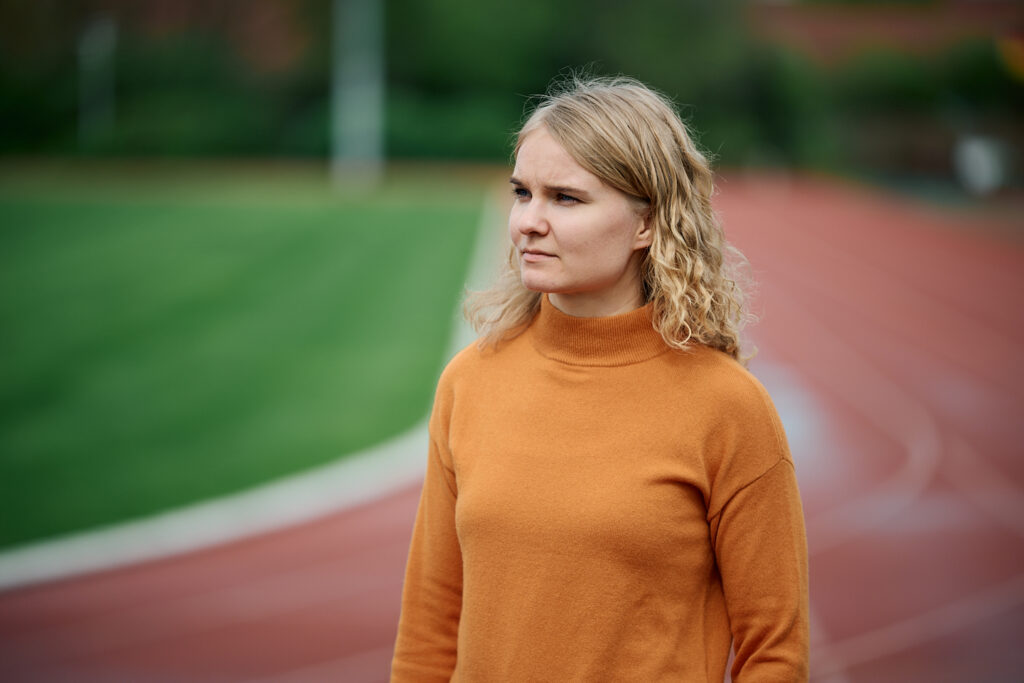
28. Which experience in the world of science disappointed you most?
Interpreting research findings incorrectly or exaggerating them. This is not a singular experience but something that occurs every day on social media channels.
29. What direct or indirect relevance does your research have for society?
My research provides new information on ways to promote physical activity, functional capacity, and mental well-being in old age. This information may be used, for example, to plan tailored interventions. Currently, I focus especially on real-life assessments within everyday environments, which may in the future foster the development of cost-effective tests to detect early changes in functional capacity.
30. What are the advantages and disadvantages of doing a remote-WiRe-fellowship?
I spend two out of the six months of my projects remotely and the remaining four months in Münster. The advantages of the remote months include being able to manage certain work tasks at my home university (e.g., teaching) and not being away from home for extended periods. The main disadvantages are practical issues such as frequent travel and finding accommodation multiple times.
31. What is your favorite place in Münster?
In April-May, I stayed in the Steinfurter Straße next to the large area with fields, animals, and trees. It was a relaxing environment for going running or walking and observing the progress of spring.
32. What is the biggest difference between the academic system you have last done research in and the academic system as you experience it in Münster / Germany?
The schedule of the academic year is different. In Finland, we have a fall semester (September-December) and a spring semester (January-May), instead of winter and summer semesters.
33. If you could change one thing about the academic system in which you have last done research in, what would it be?
To integrate more collaboration with the private sector into PhD studies and the postdoctoral phase. There are not enough academic positions for all PhDs, and not everyone can stay in academia. However, finding a place in the business world without existing connections can be challenging.



